“I never meet anybody by accident,” Callan says, and it is a fantastic spy’s line. It’s instantly easy to see how true it is for Callan. Obviously this goes for his opposition too – East German agents like Karl. It means he will always be slightly suspicious of anyone he does meet. And it’s a perfect way of showing the contrast between the world Joan thinks she’s in and the world she really has been drawn into.
Joan (Elizabeth Bell) is a brilliant young biologist who is doing important, highly secret work. Yet she has suddenly decided to leave her job, having apparently developed moral objections. She thinks there is a risk the work could be used by others as a weapon. As Joan has a photographic memory, she would essentially be taking her work with her, wherever she goes. The Section asks Callan to assess whether she poses a security risk, and we soon discover she has a German boyfriend.
He’s kinder to women. They trust him.
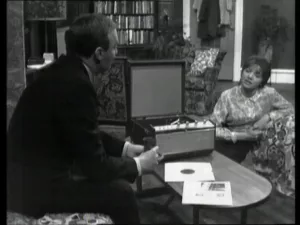
Callan is uncomfortable with the whole business of investigating Joan. He doesn’t want the job in the first place: “No birds, Hunter.” It would be hard to pretend there isn’t some old-fashioned sexism at play here, especially with lines such as, “Never did like birds with brains.” But there seems more than that.
Acting as a slightly awkward classical music fan when he meets Joan at the Royal Festival Hall concert probably comes naturally to Callan. He can’t be Toby, confidently flirting his way in with Joan’s flatmate, Sonia. It certainly fits the reserved, naïve Joan to be approached this way, but Callan’s also not really sure how to deal with her professionally.
The really dirty jobs
“You poor little idiot. What are we doing with you?” Callan says to himself after reading Karl’s latest letter to Joan. It suits the plot that Joan is a particularly naïve young woman – she’s the perfect target for Karl. And quiet, introverted Joan has clearly not embraced swinging London in any sense. Lonely highlights her differences to Sonia, and we see it in how Sonia interacts with Toby.
Her naivety in other ways is also apparent in her conversation with Callan. She twigs that Callan was in the army because he uses some of the same language as her dad, who had been in Italy during the war (it’s impossible to tell what words she’s referring to – there’s nothing that stands out, so we have to presume it’s offscreen). When she asks more, Callan tells her that he fought in Malaya.
Joan “Did you like it? He did.”
Callan “Oh, yeah, it was great. Best time I ever had.”
It’s plain to us from Callan’s expression and voiceover thoughts (“She likes you for that, Callan.”) that he’s lying. But it feels a naïve question altogether. Even if we were to accept that Joan knew little of earlier wars, there had been plenty of media coverage in the UK of the ongoing Vietnam War.
You surely had to be living a sheltered existence to believe that army life was all great fun. Joan does protest that she has no interest in politics, it’s made clear that she was a shy student at Cambridge, and she mostly lives for her work, but it’s an amazing lack of awareness. It also doesn’t tally with her desire to leave her job because she feels a moral conflict that her work could be used in warfare. If she’s gained enough worldly knowledge – gathered either by herself or encouraged by Karl – then she should probably understand that active soldiering isn’t all that jolly.
By the time this episode went out, there had been a couple of large-scale anti-war protests in London, with the press building up the October 1968 one considerably. Earlier that year, reports on the Tet Offensive showed the increasing horrors of the war. Particularly for any young lefty people watching this in 1969, Joan could have looked almost wilfully ignorant.
Chelsea Girls
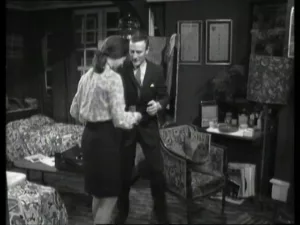
In the flat scenes, we see that Joan and Sonia share not just a flat, but a room – it’s really an open plan studio-style flat. This is an odd arrangement to me, as I’d expect them to each have a bedroom of their own. A ‘roommate’ rather than a ‘flatmate’ is something I only associate with US college students. The lack of privacy is clearly an issue when they bring guests back, with Callan hurrying off from Joan once Toby appears with Sonia.
It’s possible this was a more common arrangement for young people at that time, especially in London. It’s evident in other series, including Man About the House (1973-76) and episodes of the anthology series Rooms (1974-77), where young women are also shown sharing bedrooms.
Lonely and Callan
Lonely and Callan’s scenes together are mostly on location this week. They’re filmed in actual Chelsea around Whiteheads Grove, matching the script’s references to Joan’s flat.
Lonely’s low-brow lustiness feels firmly established here. As Callan points out Joan and Sonia, he lets out an extended “Cor!” that’s pronounced “Cwoar!” and is worthy of Sid James and Carry On… films. It’s also obvious that Joan is supposed to be a rather plain young woman, giving us another layer of sexism.
Callan “The one you want is the dark one.”
Lonely “Oh… just business then, Mr Callan?”
Callan “Yeah, just business.”
Lonely is sent to look around Joan and Sonia’s flat. Getting to rifle through two young women’s drawers (in a couple of senses) must be a dream job for him. He brings back some of Karl’s letters to Joan, which results in my favourite Lonely-ism of this episode: “They’re very passionate some of these foreigners. I reckon it must be the grub.”
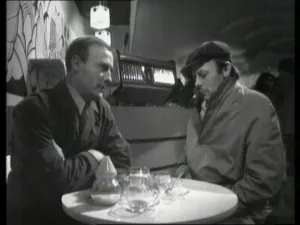
Later, Callan meets Lonely in a late-night café. Callan has clearly been kept waiting a long time as we can see six empty cups on the table! I’m presuming they were tea rather than coffee… When Lonely does arrive, Callan berates him, “You might have poshed yourself up a bit before you come in a place like this.” Presumably this is because it is supposed to be a smart café bar, which we’re told is around the corner from Joan’s Chelsea flat.
This doesn’t really come across from the studio set, with camera angles that are relatively tight around Callan’s table – likely because the set isn’t that large. However, we can see a jukebox nearby and several young people in the background, who are presumably meant to be quite ‘with it’. In which case, mid-thirties Callan in his conservative suit doesn’t exactly blend in well either.
Doctor Snell
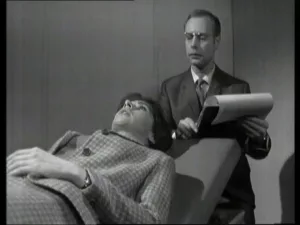
We get the debut of Doctor Snell (Clifford Rose), a “fellow we know in Harley Street” who helps out the Section. Snell doesn’t actually get named on screen in this episode, but makes a memorable impression.
There is nothing remarkable when we first see him questioning Joan under hypnosis. But later he administers various drugs to the East German agent Horst to facilitate his interrogation. Here is where Snell starts to become a great character, played perfectly by Clifford Rose.
Snell enjoys his job and finds his work fascinating. He is enthusiastic, though not overly so; he doesn’t take a sadistic pleasure in what he does – he isn’t like Toby Meres. His enjoyment is a professional, scientific satisfaction and there is no hint that he’s a potentially evil or misguided man. However, he shows just enough human detachment for us to find him a tad unsettling. For instance, Snell is annoyed Meres hit Horst so hard, but only because it makes his job more difficult.
On other occasions we learn that Callan doesn’t like Snell. But it’s not the angry, hateful dislike he has for Meres or others in the Section. Callan doesn’t like what Snell does and is creeped out by him in the same way many of us would be.
Perhaps it’s partly a justifiable fear that one day Callan could find himself strapped down in the same room as Snell. But perhaps it’s simply because Snell is a living embodiment of the Section’s approach. In their worlds people aren’t people: they’re problems to be solved, and these sorts of problems don’t require a humane approach. It’s easy to see why Snell would be brought back to the series. For Clifford Rose, Snell would make good training for his later role in Secret Army (1977-79) as the Gestapo officer Sturmbannführer Ludwig Kessler.
You’ll destroy his mind
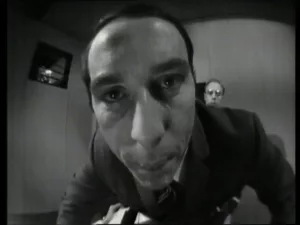
Peter Blythe does a decent job as the drugged-up Horst, and the production overall is good at making us understand the effects on him. Horst has clearly been sweating, but as he’s speaking he puts his jacket on and pulls it around himself tightly, like he’s suddenly gone very cold. His speech keeps slipping between German and English, reflecting that fact that he thinks he’s giving a report to his masters for their archives decades later.
Several camera techniques are used for POV shots. A fish eye lens gives us the imposing sight of Meres leaning over the half-conscious Horst. Hunter appears with a normal lens, but at unusual angles that slowly move, and he keeps going in and out of focus. We see Horst blinking and straining his eyes, trying to focus. It’s combined with an echo effect on Hunter’s speech.
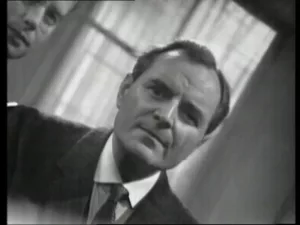
Together, these all communicate Horst’s disorientation, and they’re enough to be effective without seeming overused. “You’ll destroy his mind,” says Joan, and it’s easy to believe this. We’ve been made to feel his vulnerability.
I hate killing. I sometimes do it.
Having seen what Snell’s approach has done to Horst, Joan associates Callan with this cold cruelty. Or maybe she’s just upset and angry that her world has been rocked. She’s adamant that her East German boyfriend can’t really be deluding her as a spy.
Joan “Karl told me he hated killing.”
Callan “I hate killing. I sometimes do it.”
Joan “You don’t hate it. You love it!”
Callan “Look, I don’t have to justify myself to you, darling!”
Joan’s line, “You don’t hate it. You love it!” is a heat-of-the-moment retort. She doesn’t know Callan well enough to know this, but she doesn’t want to believe that Karl is anything like them. She grabs at “love” as the basic opposite to “hate” and angrily spits it back at Callan. But after a brief pause it’s apparent she’s touched a nerve.
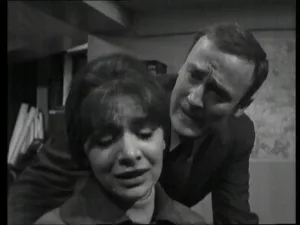
As Callan has to convince her of Karl’s guilt so she’ll help entrap him, he’s calm and matter-of-fact initially as he reads out the facts from Karl’s file. After he loses his temper, there’s a good moment where Edward Woodward briefly pulls a face, clearly showing that Callan is annoyed with himself. He needs to change tact. He’s almost annoyed with her, at her naivety, her stubborn refusal that this young man might have tricked her. “You’re not at the pictures now, Joan! This is all very real.” Instead, he does his best to scare her, adding a little guilt that she should help them so Karl won’t be killed.
![]()
Women in Callan don’t get a great deal a lot of the time. Here, there’s a sense that this is a dirty business and nice young girls shouldn’t get wrapped up in it. Joan might have had academic brains but she clearly didn’t know enough – and was reluctant to believe the reality – about the nasty world of espionage. However, The Most Promising Girl of Her Year certainly isn’t simple period sexism: we’ll see several other intelligent women later in the series, and some with no illusions about exactly what they’re involved in.
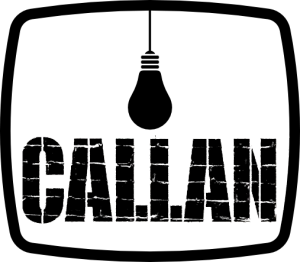

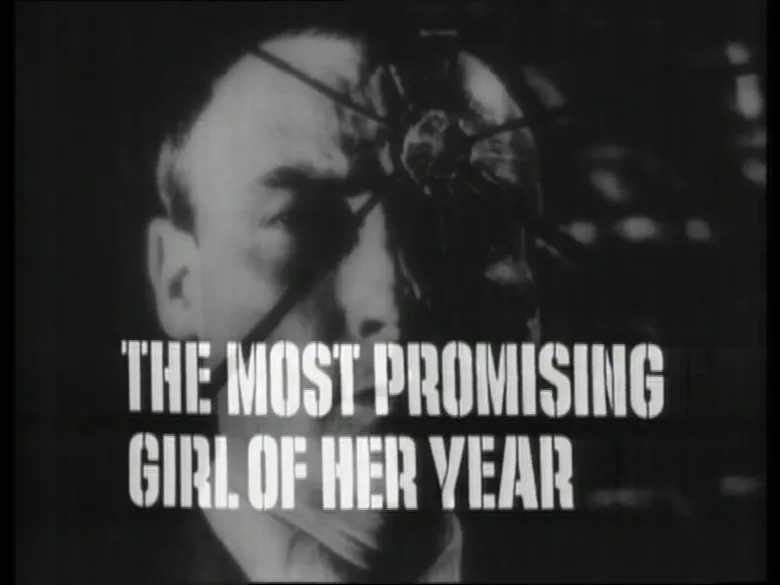
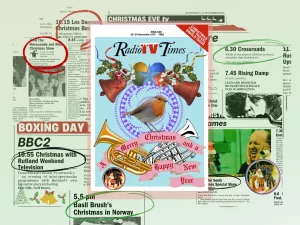
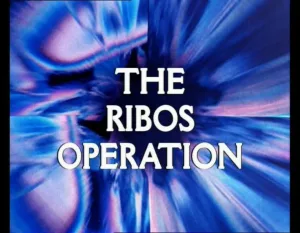
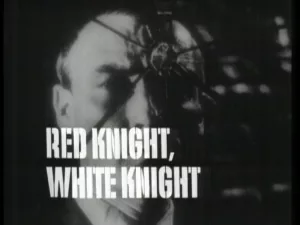
Comments
Perhaps Callan expected Lonely to have made more of an effort at the cafe in case they were seen together, it being so close to Joan’s flat. The more respectable Lonely appeared, the more he could pass it off as a chance meeting of an old acquaintance or a business matter that was convenient to discuss nearby. Otherwise, “I saw this poor old tramp and offered to buy him a cup of tea, or six.”